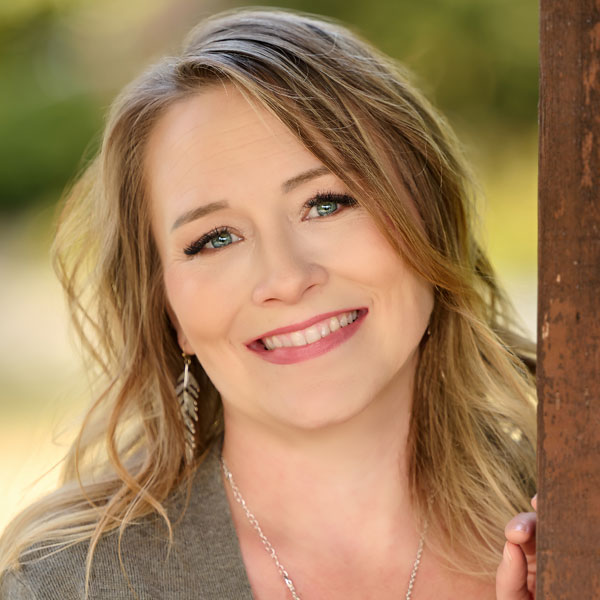 Codependency was first discovered and described in relationships between alcoholics and their spouses. Experts have realized that codependency can also happen in non-addiction-related situations and relationships, but that codependency recovery is possible.
Codependency was first discovered and described in relationships between alcoholics and their spouses. Experts have realized that codependency can also happen in non-addiction-related situations and relationships, but that codependency recovery is possible.
Codependency, or a pattern of over-dependence and enabling between two people, can quickly become entrenched and linger for years or decades. Recovery may be difficult, but again, it is possible.
Some common situations that can lead to codependency include mental health conditions, eating disorders, enmeshed families, and other dysfunctional patterns. Codependency strains relationships under the guise of improving them.
Keep reading to learn more about what codependency is and how Christian counseling can help with codependency recovery.
What is codependency?
Let’s start by listing some characteristics of codependency. According to Mental Health America, it’s “a learned behavior… an emotional and behavioral condition… also known as ‘relationship addiction’ because people with codependency often form or maintain relationships that are one-sided, emotionally destructive and/or abusive.” Codependency most likely has its roots in childhood and one’s family of origin.
One of the most important things to know about codependency is that it generally involves enabling harmful behaviors. One person may be acting in a destructive way, whether self-destructive or harmful toward others, and the other person in the relationship directly or indirectly enables that behavior, allowing the harm to continue.
If you’re wondering, “Am I codependent?” or, “Am I in a codependent relationship?” here are some signs for which to look. Psych Central lists these mindsets or behaviors as red flags of codependency.
Some may apply to spouses or romantic partners, while others might apply to friendships or family relationships. Some behaviors may apply to the “needy” person in the relationship, while others may apply to the person who is on the destructive end of the relationship:
- Prioritizing the other person’s happiness above your own, and frequently worrying about how to make him or her happy.
- Blaming the other person for life difficulties and/or things that aren’t his or her fault.
- An intolerance for being apart or spending all your time together because one person can’t handle separation for any reasonable length of time.
- The inability to form one’s own opinion separate from the other person.
- Instead of healthy communication and letting the other person know when you’re making plans as a courtesy, you feel the need to get permission to make plans.
If you recognize any of these red flags in your relationship, counseling can help you understand the dynamics more deeply and find ways to implement healthier patterns. Meanwhile, keep reading for more examples of codependency in relationships.
What does a codependent relationship look like?
 What are some situations in which codependency is likely to arise? As mentioned above, this pattern was first observed in relationships between alcoholics and their spouses, but codependency doesn’t always relate to addiction.
What are some situations in which codependency is likely to arise? As mentioned above, this pattern was first observed in relationships between alcoholics and their spouses, but codependency doesn’t always relate to addiction.
Codependency can arise out of many different situations. For example, it can happen when one person has a chronic illness and needs a caregiver, but the level of dependence becomes excessive and unhealthy. Codependency can occur between parents and children, spouses, friends, and other relationships.
Here’s what codependency is not:
- It’s not simply depending on someone else.
- Feeling insecure, socially anxious, or upset when someone is angry at you doesn’t necessarily mean you are codependent.
Love and the natural feelings that come along with it are normal. A healthy level of jealousy (for example, not wanting your spouse to openly flirt with other people) is normal, especially when expressed constructively. It’s possible to be hyper-independent instead of codependent. Refusing to ever rely on other people can also cause harm.
Since interpersonal relationships are so complex and nuanced, individual counseling can help you sort through the dynamics and gain a clearer picture of how to move forward. Issues related to codependency include enmeshment and emotional immaturity. Whether or not the relationship involves fully-fledged codependency, a counselor can help you discuss these issues and take steps to overcome them.
Codependency recovery: the basics.
Let’s talk about three aspects of recovering from codependency: learning to set boundaries, developing a healthy self-concept, and achieving interdependence.
Boundaries and codependency.
Although the word boundaries has become a bit of a buzzword and has even been weaponized in some cases in an attempt to control other people, it’s still crucial to understand this concept healthily.
Everyone needs to understand that the purpose of setting boundaries is not to attempt to control other people. Rather, boundaries protect everyone. A boundary must have a consequence if it is disregarded, but that consequence is not intended to punish. Rather, it’s a choice made to protect yourself when another person chooses to dishonor your expressed limits.
 Boundaries are not intended to make enemies; they are intended to protect the health of every relationship and person. They show up in all healthy relationships, whether they’re directly expressed or not.
Boundaries are not intended to make enemies; they are intended to protect the health of every relationship and person. They show up in all healthy relationships, whether they’re directly expressed or not.
Many boundaries remain intuitive and unspoken. For example, knocking on a closed door, not cutting in line, not opening someone’s mail, etc. are all boundaries. But some boundaries are more specific to an individual and may need to be expressed directly.
If you’re not used to assertive communication, especially in a codependent relationship, setting boundaries can be extremely challenging.
Why do we need boundaries? We need healthy boundaries because they allow us to steward our humanity, time, energy, and resources. They allow us to serve others from a place of strength instead of weakness. Jesus rested when he was tired, and he knew his limits. Boundaries allow us to acknowledge our human limitations. We are not God; we are finite, weak human beings who must eat, sleep, rest, and recuperate.
As we set our boundaries, we must also respect other people’s limits. Codependency recovery is possible with this new understanding. It takes time and is challenging, but it is possible.
Developing a sense of self.
Enmeshment often characterizes unhealthy family systems. It occurs when people lose their sense of self, unable to find or maintain a healthy level of differentiation from others. This means they are unable to relate as separate individuals with their thoughts and feelings.
Verywell Mind explains:
“Enmeshment and codependency are very closely related. People who come from enmeshed families learn that they need to rely on others for their self-worth. They also are taught that their emotional reactions are not separate from others’ emotional responses.
Coming from enmeshed families teaches codependency. It becomes difficult to have your thoughts and feelings, and you might take on others’ needs, wants, and responses as your own. You might also excuse negative or unhealthy behaviors because it’s too difficult to set boundaries.”
As opposed to enmeshment, healthy development into adulthood means regulating your own emotions, relying on others in healthy ways, and communicating assertively in relationships.
Understanding interdependence and finding freedom.
While codependence or overdependence is harmful, that doesn’t mean rugged individualism and complete independence is a healthy lifestyle, either. Rather, a balanced level of dependence on others, along with the ability to cope on one’s own when needed, can go a long way toward helping you live a healthier and happier life.
Verywell Mind distinguishes between codependence and interdependence:
“Interdependence is not the same thing as being codependent. A codependent person tends to rely heavily on others for their sense of self and well-being. There is no ability for that person to distinguish where they end and their partner begins, there is an enmeshed sense of responsibility to another person to meet their needs and/or for their partner to meet all of their needs to feel okay about who they are.”
When finding freedom from codependence during codependency recovery, you will enjoy the blessing of freedom from guilt over things that are not even wrong! You can break the pattern of enabling destructive behavior. You can allow others to experience the consequences of their actions instead of attempting to shield them from reality.
Additionally, you can enjoy the sense of dependence on Christ instead of on fallible humans. God is the only one who is fully dependable, infallible, and able to meet all our needs.
Your counselor can help you find a balance between caring for others and being overprotective. Your heart to love and help others can overflow in showing genuine love for them in what is truly good for them, even when it’s uncomfortable.
Christian counseling for codependency recovery.
In Christian counseling for codependency recovery, you can find help to identify harmful relationship patterns, including signs of codependency.
Every relationship, individual, and situation is unique, and it’s not always possible to find individualized solutions simply by reading or learning online. Your counselor will get to know you and your situation and will tailor a treatment plan accordingly.
Christian counseling can also help with related issues such as enmeshment, emotional abuse, and addiction. Finally, you can learn to set boundaries and find freedom in Christ. Call us today to schedule your risk-free initial session.
Resources:
https://www.mhanational.org/co-dependency
https://www.verywellhealth.com/enmeshment-healing-steps-5223635
https://psychcentral.com/lib/codependency-vs-interdependency
https://www.verywellmind.com/how-to-build-a-relationship-based-on-interdependence-4161249
Photos:
“Dependence”, Courtesy of Milan Popovic, Unsplash.com, CC0 License; “The Kiss”, Courtesy of Frank Mckenna, Unsplash.com, CC0 License; “Black Heart”, Courtesy of Kelly Sikkema, Unsplash.com, CC0 License; “Bike Ride”, Courtesy of Everton Vila, Unsplash.com, CC0 License






